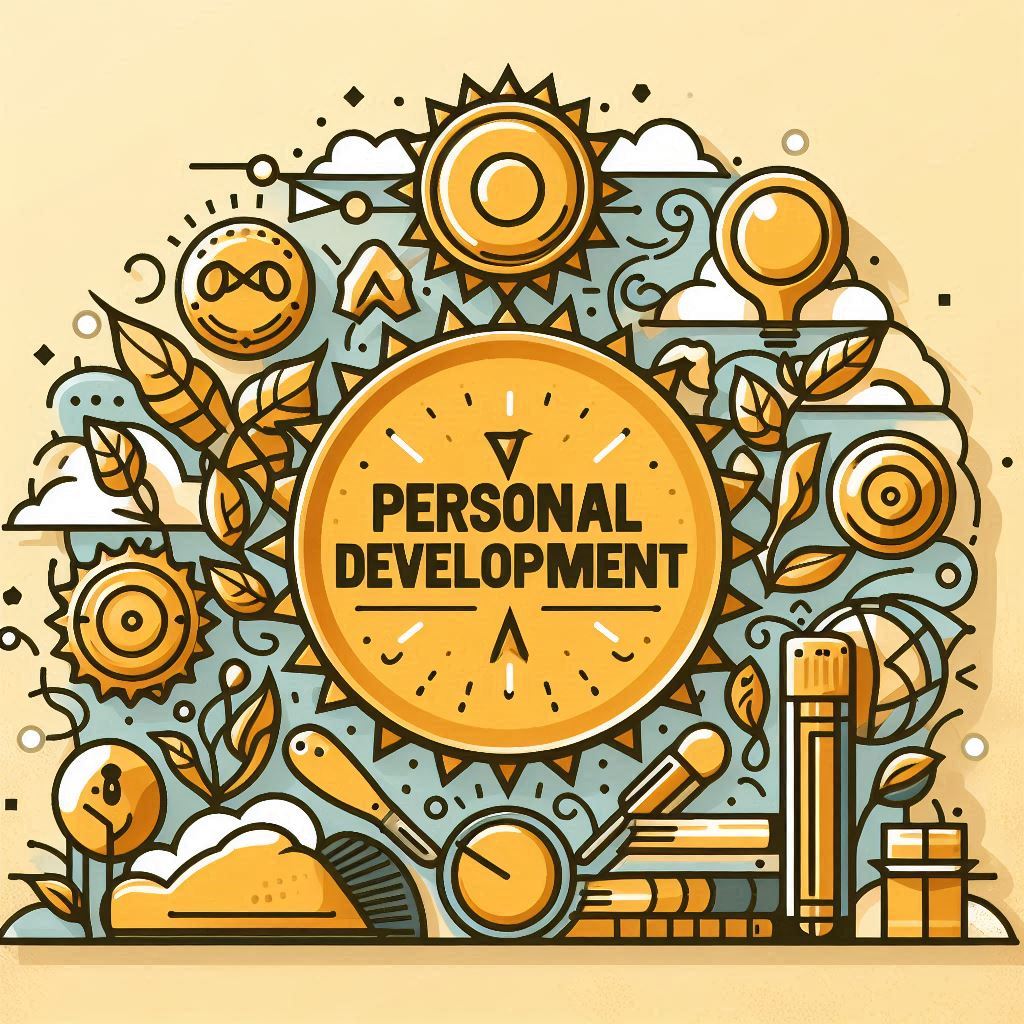Maintaining good health is essential for a fulfilling life. Being healthy not only keeps our bodies in good shape but also helps us perform well in our daily activities. A healthy lifestyle is an investment in our physical and mental well-being. The journey towards good health begins with taking small steps towards healthy habits. In this article, we will discuss the key aspects of starting a healthy lifestyle and becoming healthy.
Eating Habits:
A healthy lifestyle starts with a balanced diet. It is important to have a good balance of macronutrients in our diet, which include carbohydrates, proteins, and fats. Carbohydrates are a source of energy for the body, and they should make up 45-65% of our daily calorie intake. Proteins are essential for building and repairing body tissues and should make up 10-35% of our daily calorie intake. Fats are important for the absorption of vitamins and minerals and should make up 20-35% of our daily calorie intake.
In addition to macronutrients, it is important to have a good balance of micronutrients in our diet. These include vitamins, minerals, and other essential nutrients that our body needs to function properly. Eating a variety of fruits, vegetables, whole grains, lean proteins, and healthy fats can help ensure that we are getting all the essential nutrients we need.
One way to ensure a balanced diet is to follow the USDA MyPlate guidelines. The MyPlate guidelines recommend filling half of our plate with fruits and vegetables, a quarter with whole grains, and a quarter with lean proteins. In addition, it is important to limit our intake of processed and high-sugar foods and drinks.
When it comes to portion sizes, it is important to eat until we are satisfied, but not overly full. It can be helpful to use measuring cups and spoons or a food scale to measure our portions until we get a good sense of what a serving size looks like. It is also important to eat slowly and mindfully, savoring the flavors and textures of our food.
Exercise:
In addition to a balanced diet, regular exercise is important for good health. Exercise can help us maintain a healthy weight, reduce our risk of chronic diseases, and improve our mental health. The American Heart Association recommends at least 150 minutes of moderate-intensity exercise or 75 minutes of vigorous-intensity exercise per week.
Moderate-intensity exercise includes activities such as brisk walking, cycling, and swimming, while vigorous-intensity exercise includes activities such as running, jumping rope, and high-intensity interval training (HIIT). It is important to choose activities that we enjoy and that fit our lifestyle. For example, if we enjoy dancing, we can take a dance class or go dancing with friends.
It is also important to include strength training exercises in our routine. Strength training can help build muscle mass, increase bone density, and improve our metabolism. Strength training can include activities such as lifting weights, using resistance bands, or doing bodyweight exercises such as push-ups and squats.
In addition to structured exercise, it is important to stay active throughout the day. This can include activities such as taking the stairs instead of the elevator, going for a walk during our lunch break, or doing household chores.
Mental Health:
Good mental health is an important aspect of overall health. Mental health includes our emotional, psychological, and social well-being. It affects how we think, feel, and act and can impact our physical health as well.
One way to maintain good mental health is to practice self-care. This can include activities such as getting enough sleep, eating a balanced diet, exercising regularly, and taking time to relax and do activities we enjoy.
Another important aspect of good mental health is managing stress. Stress is a normal part of life, but chronic stress can have negative effects on our physical and mental health. It is important to find healthy ways to manage stress, such as practicing relaxation techniques like deep breathing or meditation, engaging in physical activity, or talking to a trusted friend or counselor.
Social connections are also important for good mental health. Maintaining relationships with family and friends can provide a sense of belonging and support. Volunteering or participating in community activities can also help us feel connected to others and give us a sense of purpose.
It is also important to seek help if we are struggling with mental health issues. This can include talking to a mental health professional, reaching out to a support group, or seeking medical treatment if necessary.
Starting Out:
Starting a healthy lifestyle can feel overwhelming, but it is important to remember that small changes can make a big difference. Here are some tips for getting started:
- Start with small changes: Instead of trying to completely overhaul our diet or exercise routine, start with small changes. For example, we can try adding a serving of vegetables to our meals or taking a 10-minute walk during our lunch break.
- Set realistic goals: Setting goals can help us stay motivated, but it is important to set realistic goals that we can achieve. For example, instead of setting a goal to lose 10 pounds in a week, set a goal to lose 1-2 pounds per week.
- Track our progress: Keeping track of our progress can help us stay motivated and see the progress we are making. This can include tracking our food intake or exercise routine in a journal or using a tracking app.
- Find support: Having support from friends or family can help us stay motivated and accountable. We can also consider joining a support group or working with a personal trainer or nutritionist.
- Be patient: Becoming healthy takes time, and it is important to be patient with ourselves. We may experience setbacks or challenges, but it is important to keep moving forward and not give up.
Maintaining good health is essential for a fulfilling life. A healthy lifestyle includes a balanced diet, regular exercise, and good mental health. Starting out on a healthy lifestyle can feel overwhelming, but small changes can make a big difference. It is important to start with small changes, set realistic goals, track our progress, find support, and be patient. By taking these steps towards a healthy lifestyle, we can improve our physical and mental well-being and live a fulfilling life.
When it comes to what to eat, there are some general guidelines to follow for a healthy diet. A balanced diet should include a variety of fruits, vegetables, whole grains, lean proteins, and healthy fats.
Fruits and vegetables are important sources of vitamins, minerals, and fiber. It is recommended to aim for at least 5 servings of fruits and vegetables per day. This can include fresh, frozen, or canned options.
Whole grains, such as whole wheat bread, brown rice, and quinoa, provide fiber and important nutrients. It is recommended to aim for at least half of our grains to be whole grains.
Lean proteins, such as chicken, fish, tofu, or beans, provide important nutrients and help us feel full. It is recommended to aim for at least 2 servings of lean protein per day.
Healthy fats, such as those found in nuts, seeds, and avocados, provide important nutrients and help us feel full. It is recommended to limit saturated and trans fats, found in fried foods, processed snacks, and fatty meats.
When it comes to portion sizes, it is important to be mindful of how much we are eating. Using a food scale or measuring cups can help us accurately portion our meals. It is also important to listen to our bodies and eat until we feel satisfied, rather than overeating.
In addition to a balanced diet, regular exercise is important for good physical health. The American Heart Association recommends at least 150 minutes of moderate-intensity aerobic exercise or 75 minutes of vigorous-intensity aerobic exercise per week. This can include activities such as brisk walking, running, cycling, or swimming.
Strength training, such as lifting weights or using resistance bands, is also important for building and maintaining muscle mass. It is recommended to strength train at least 2 days per week, targeting all major muscle groups.
It is important to start slowly and gradually increase the intensity and duration of our workouts. It is also important to vary our workouts to prevent boredom and challenge different muscle groups.
When it comes to mental health, there are many practices that can help us maintain good mental well-being. It is important to prioritize self-care, which can include activities such as taking a relaxing bath, reading a book, or practicing a hobby.
Stress management is also important for good mental health. This can include practicing relaxation techniques such as deep breathing or meditation, engaging in physical activity, or seeking support from friends or family.
Social connections are also important for good mental health. Maintaining relationships with family and friends can provide a sense of belonging and support. Volunteering or participating in community activities can also help us feel connected to others and give us a sense of purpose.
It is also important to seek help if we are struggling with mental health issues. This can include talking to a mental health professional, reaching out to a support group, or seeking medical treatment if necessary.
Starting a healthy lifestyle can feel overwhelming, but it is important to remember that small changes can make a big difference. It is important to start with small changes, set realistic goals, track our progress, find support, and be patient. By taking these steps towards a healthy lifestyle, we can improve our physical and mental well-being and live a fulfilling life.
In addition to these general guidelines, there are some specific tips to keep in mind when starting out on the journey towards a healthy lifestyle.
First, it can be helpful to plan our meals and snacks in advance. This can help us make healthier choices and avoid impulsive, unhealthy options. Meal planning can also save time and money, as we can buy ingredients in bulk and cook in batches.
It is also important to stay hydrated by drinking plenty of water throughout the day. Drinking water can help us feel full, improve digestion, and prevent dehydration. It is recommended to aim for at least 8 glasses of water per day, or more if we are exercising or in a hot environment.
When it comes to exercise, it is important to find activities that we enjoy and that fit into our lifestyle. This can help us stick to our exercise routine and make it a sustainable part of our lifestyle. Some people prefer to exercise in a group setting, such as a fitness class or sports team, while others prefer solo activities such as running or swimming.
It is also important to prioritize rest and recovery. Our bodies need time to recover after exercise, so it is important to include rest days in our workout routine. Getting enough sleep is also important for good physical and mental health. It is recommended to aim for 7-9 hours of sleep per night.
When it comes to mental health, it can be helpful to practice mindfulness and self-compassion. Mindfulness practices, such as meditation or yoga, can help us stay present and calm in the moment. Self-compassion involves treating ourselves with kindness and understanding, rather than criticism and self-judgment.
It is also important to set realistic goals and celebrate our progress. It can be easy to become discouraged if we don’t see immediate results, but it is important to remember that progress takes time. By setting small, achievable goals and tracking our progress, we can stay motivated and build momentum towards our larger goals.
Finally, it is important to find support and accountability. This can come in the form of a workout buddy, a support group, or a coach or mentor. Having someone to share our journey with can provide motivation, encouragement, and accountability.
In conclusion, starting out on the journey towards a healthy lifestyle can feel overwhelming, but it is important to remember that small changes can make a big difference. By focusing on a balanced diet, regular exercise, and good mental health practices, we can improve our physical and mental well-being and live a fulfilling life. It is important to set realistic goals, track our progress, and find support and accountability along the way. By taking these steps, we can create a sustainable healthy lifestyle that will benefit us for years to come.



































